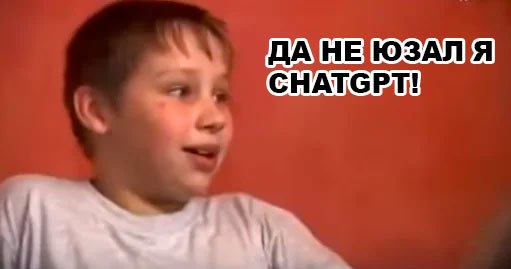Student Accused of Using ChatGPT, Proves Original Work
A student recently shared a frustrating experience on Reddit, accusing their teacher of falsely claiming their work was AI-generated by ChatGPT. Despite diligently completing their assignment independently, the student found themselves under suspicion when their teacher ran their text through AI detection tools. The situation was exacerbated by some classmates admitting to using ChatGPT for their own assignments, further fueling the teacher’s doubts. The student even presented Google Docs version history as proof of their original effort, but this evidence was reportedly dismissed by the educator. Now, the student is seeking advice and solutions on how to prove their originality and clear their name.
This incident highlights a growing dilemma in education as AI tools like ChatGPT become more accessible. While these tools offer potential benefits for learning and research, they also present challenges for academic integrity. Teachers are increasingly relying on AI detection software to identify plagiarism, but these tools are not always accurate. False positives can lead to unfair accusations and distress for students who have genuinely put in the effort to produce their own work.
Navigating the AI Detection Minefield
The student’s predicament raises several important questions for educators and students alike:
- Reliability of AI Detectors: How accurate are current AI detection tools, and what are their limitations? Many detectors struggle to distinguish between AI-generated text and human writing, especially when the AI is used as a writing assistant rather than a complete generator.
- Teacher Training and Awareness: Are educators adequately trained to understand the nuances of AI-assisted writing and the capabilities and limitations of AI detection software? A lack of understanding can lead to misinterpretations and unfair judgments.
- Student Responsibility and Transparency: How can students best demonstrate their originality when faced with such accusations? Transparency about the tools used, such as citing AI assistance if applicable, might become more crucial.
- Developing Fair Assessment Methods: Educators might need to explore assessment methods that are less susceptible to AI generation, such as in-class assignments, oral presentations, or project-based learning that requires critical thinking and personal reflection.
The student’s plea for help echoes the concerns of many who fear being wrongly accused in this evolving academic landscape. Proving that work is entirely original, especially when AI detectors flag it, can be a daunting task. The Google Docs version history, which typically shows a chronological record of edits and contributions, is a strong indicator of original authorship. However, its dismissal by the teacher suggests a potential lack of trust or an over-reliance on automated tools.
Seeking Solutions: What Can Be Done?
For students facing similar situations, several strategies might be considered:
- Document Everything: Keep meticulous records of your writing process, including drafts, notes, research materials, and any AI tools used (even for brainstorming or editing).
- Communicate Proactively: If you anticipate potential issues, communicate with your teacher beforehand about your writing process and any tools you might be using.
- Seek Clarification: Ask your teacher for specific feedback on why they believe the work is AI-generated and what evidence they have.
- Gather Supporting Evidence: Beyond version history, consider asking peers who have seen your drafts or process to vouch for your work.
- Understand School Policy: Familiarize yourself with your school’s academic integrity policy and the procedures for appealing academic dishonesty accusations.
This situation underscores the urgent need for a balanced approach to AI in education. While combating plagiarism is essential, it should not come at the cost of penalizing students who are genuinely learning and producing original work. The focus should be on fostering critical thinking and ethical use of technology, rather than solely on detection.
Discover More about navigating academic integrity in the age of AI.
Contact: https://t.me/MLM808

